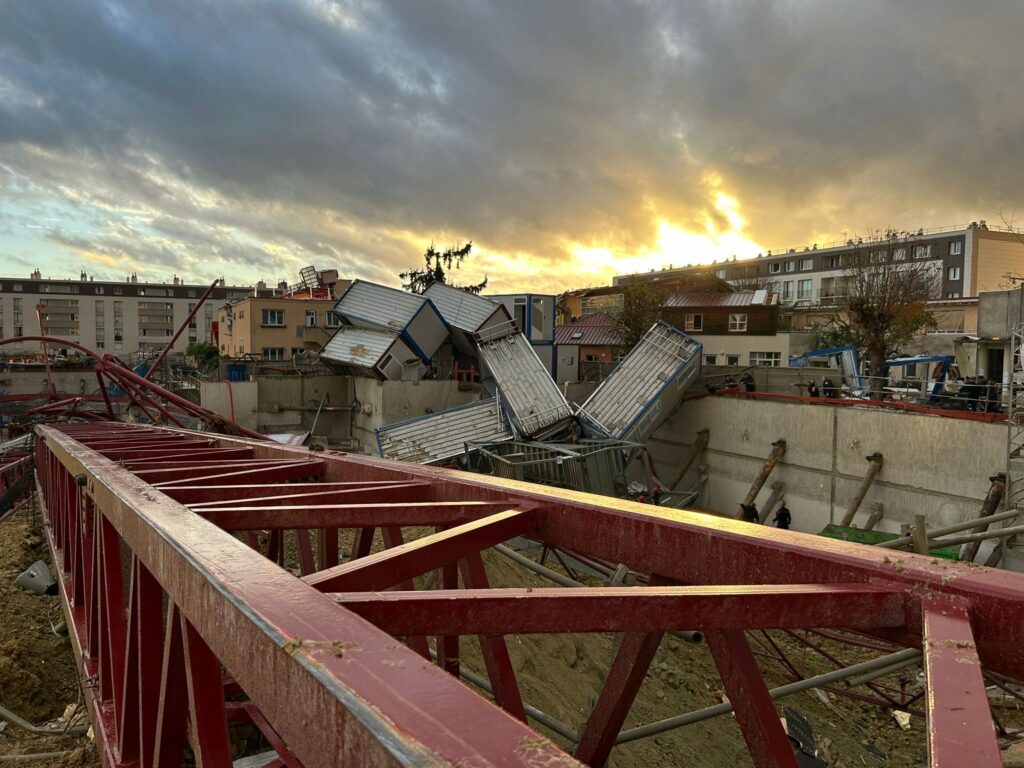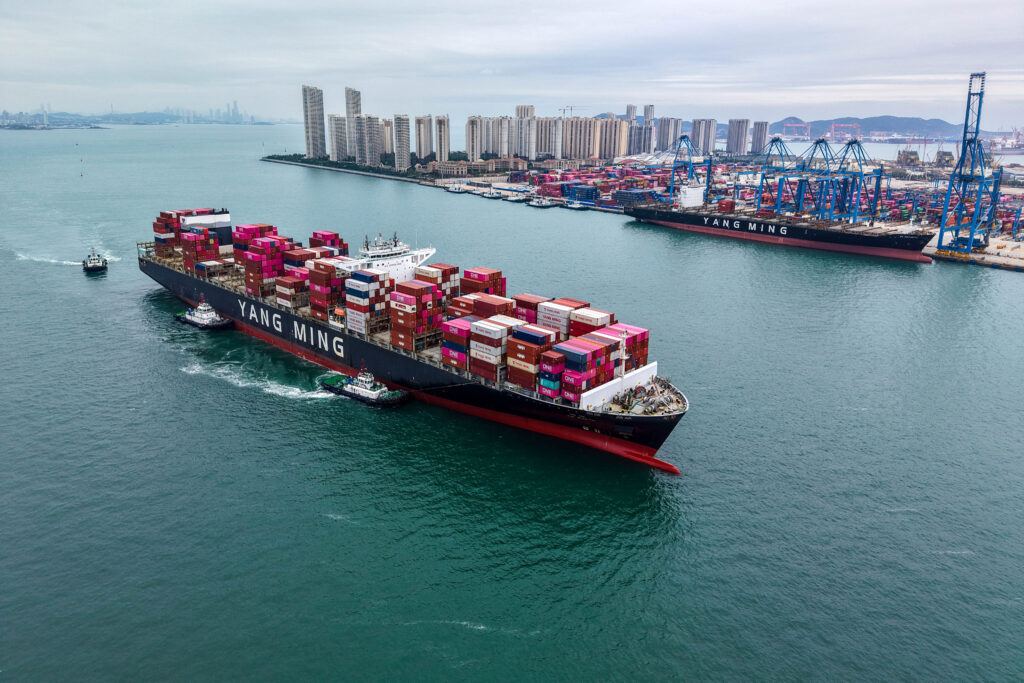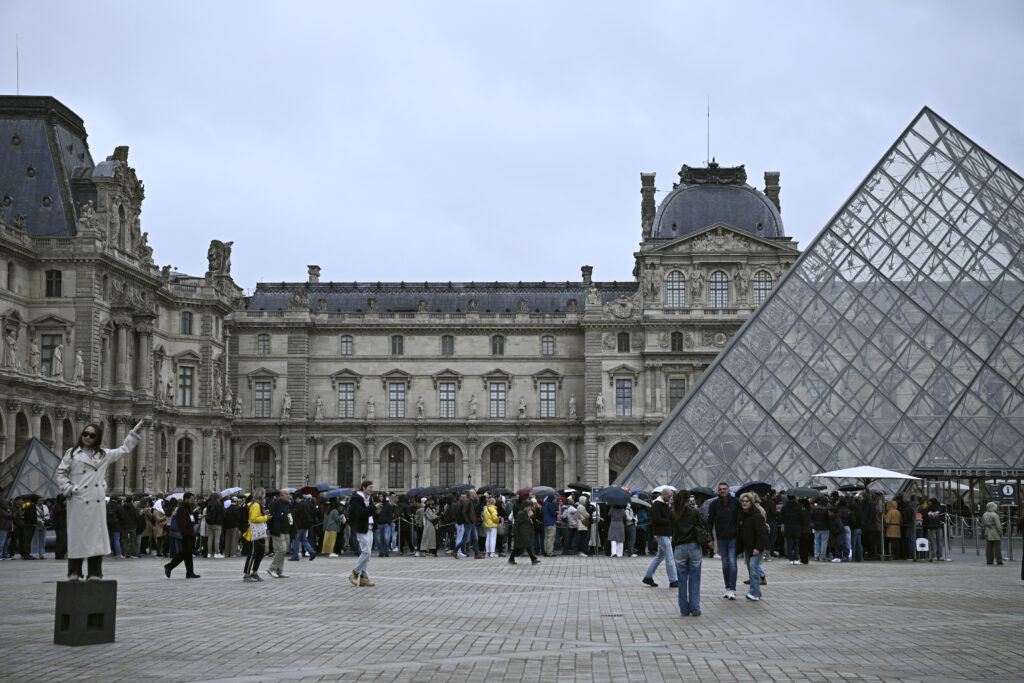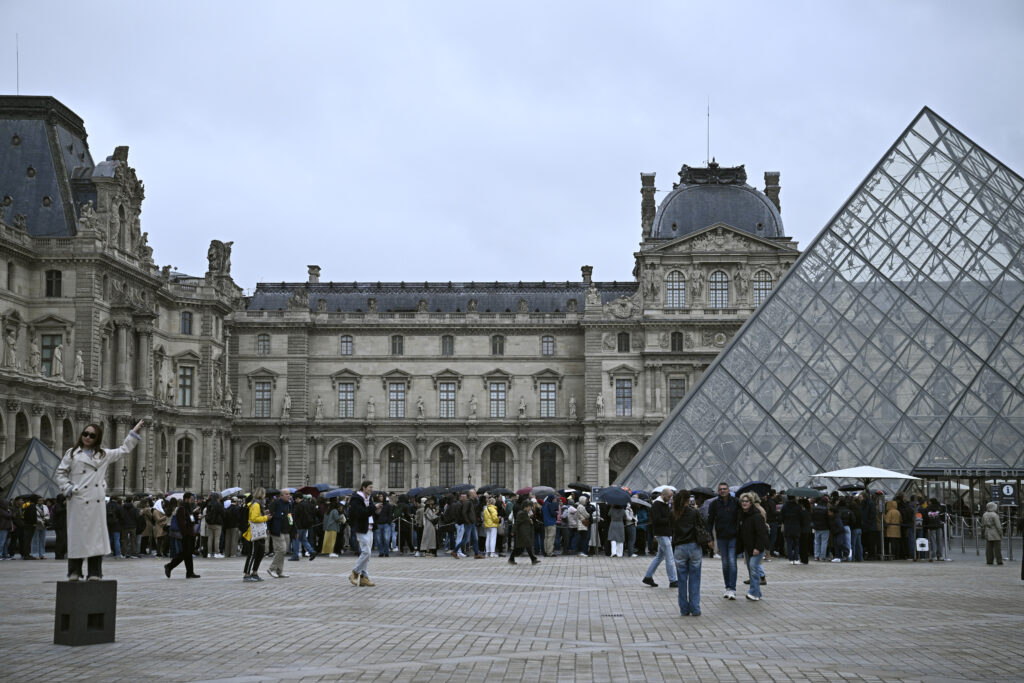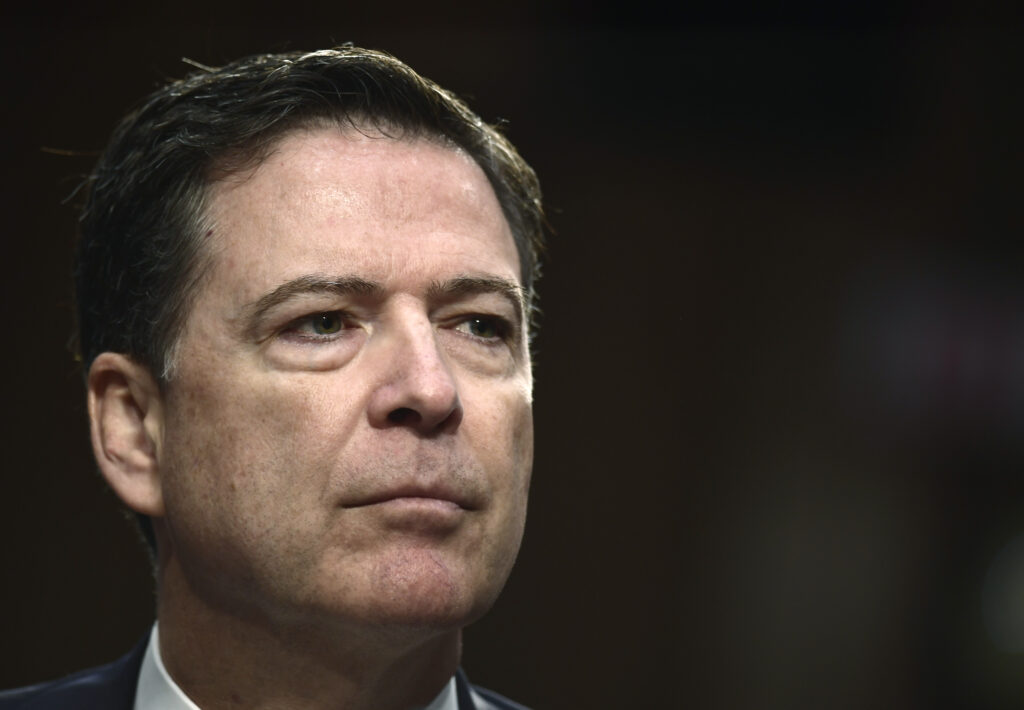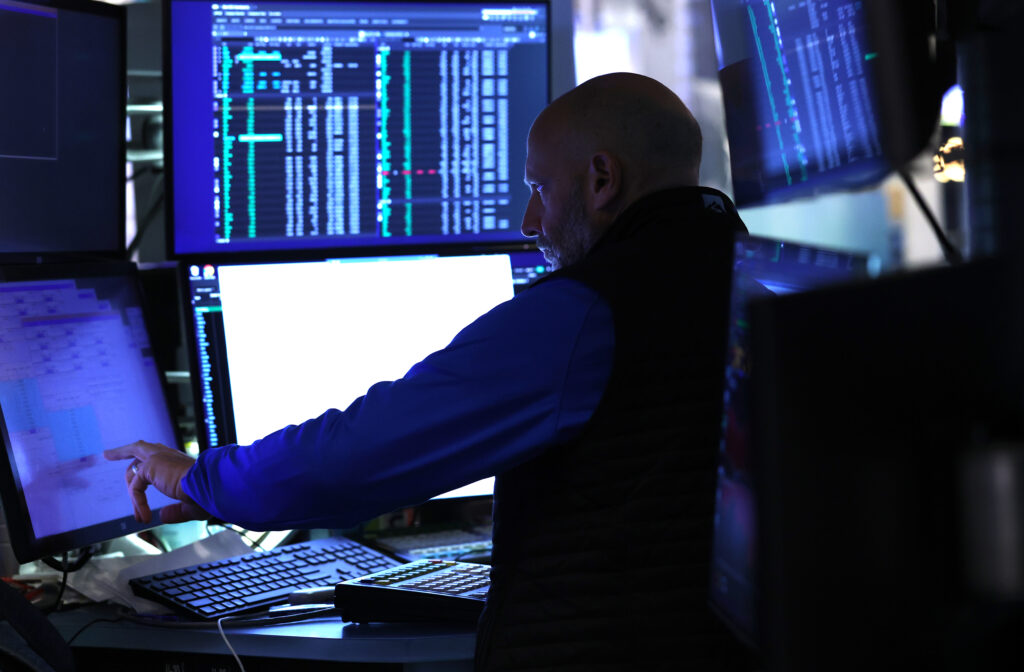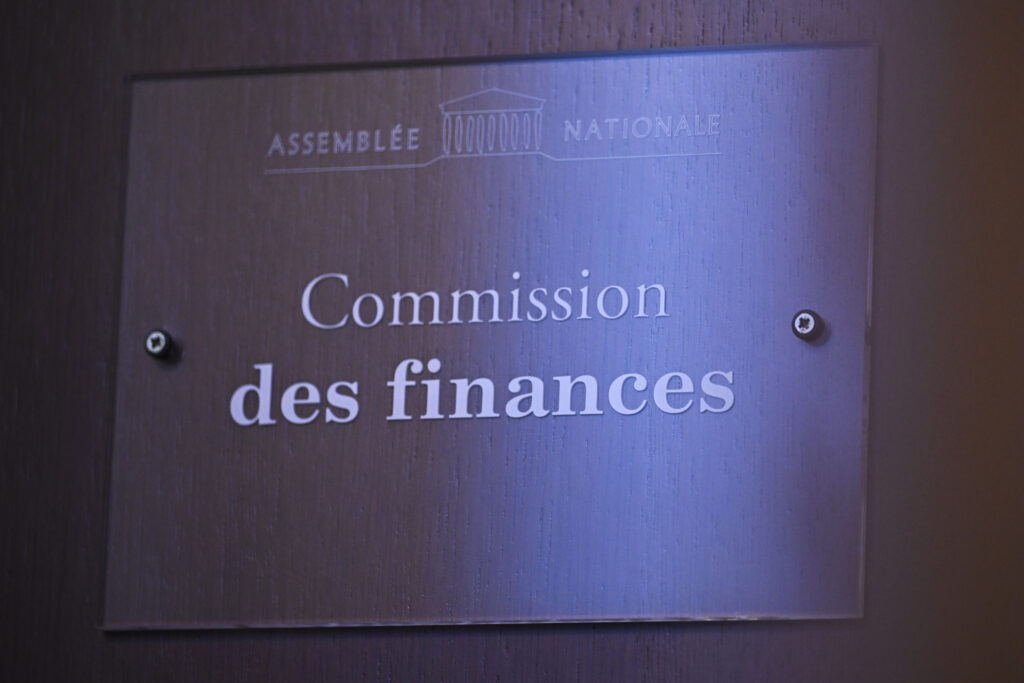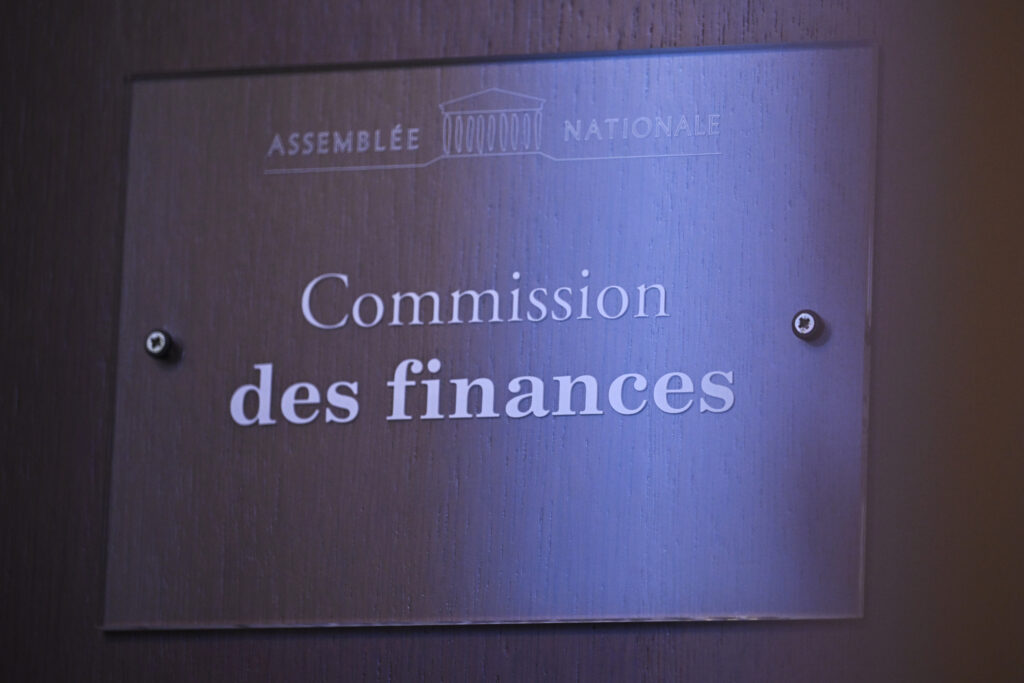Val-d’Oise: une tornade renverse trois grues et tue un jeune travailleur sur un chantier
Un travailleur de 23 ans a été tué sur un chantier et quatre autres personnes ont été grièvement blessées lundi à Ermont dans le Val-d’Oise quand une tornade, soudaine et violente, a fait s’écrouler trois grues, selon les autorités préfectorales et judiciaires.La ville d’Ermont, située à 21 km au nord-est de Paris, a été la plus affectée par “cet épisode venteux, soudain et violent, localisé à une dizaine de communes, qui s’est produit à 17H50”, a indiqué le préfet Philippe Court, joint par l’AFP sur place. Le représentant de l’Etat a évoqué “une sorte de mini-tornade”.”On recense dix victimes dont une décédée, un homme de 23 ans”, a précisé de son côté le procureur de la République de Pontoise, Guirec Le Bras, qui s’est également déplacé sur les lieux. Il s’agit “d’un des employés de l’entreprise de construction privée qui intervenait sur le chantier”, a-t-il ajouté par téléphone. Dans l’attente de l’autopsie, le procureur n’a pu livrer davantage d’éléments sur les conditions dans lesquelles le décès est intervenu.Une enquête pour homicide involontaire et blessures involontaires dans le cadre du travail a été ouverte à Pontoise, en flagrance, et confiée au service interdépartemental de police judiciaire du Val-d’Oise.Dans la soirée, l’inspection du travail s’est déplacée sur les lieux à Ermont, pour les premières constatations, a précisé le procureur.- Grues balayées, toits arrachés -L’homme décédé a été touché dans “une zone de chantier traversée par la mini-tornade”, selon M. Court. Une autre grue est tombée sur un établissement médico-social, sans y faire de victimes. Une troisième a chuté sur un bâtiment d’habitation, a-t-il précisé.Dix victimes au total sont recensées.”On compte une personne décédée, quatre en urgence absolue et cinq en urgence relative”, avait détaillé en début de soirée la préfecture, évoquant “un épisode de vents violents à présent terminé” durant lequel des “grues sont tombées et des toits ont été arrachés”.Des vidéos postées sur des comptes du réseau social X montrent trois grues s’effondrer en quelques secondes, l’une après l’autre.Sur des images obtenues par l’AFP auprès du syndicat Alliance police nationale, une de ces grues apparaît effondrée sur un bâtiment d’habitation.”Les importants dégâts matériels y seront recensés une fois le jour levé”, a commenté M. Court.Les sapeurs-pompiers et les forces de sécurité sont également intervenus à Eaubonne, Andilly, Montmorency ou encore à Franconville…Le ministre de l’Intérieur, Laurent Nuñez, a évoqué sur X un “épisode de tornade soudain et d’une rare intensité”.Sur place ont rapidement été mobilisés des dizaines de pompiers, 50 policiers et 20 personnels du Service d’aide médicale d’urgence (Samu), ainsi qu’une dizaine de médecins, selon la préfecture.Sur son compte officiel sur X, la Sécurité civile a exprimé dans la soirée son “soutien total aux 110 sapeurs-pompiers du Sdis 95 et aux 66 bénévoles des associations agréés de Sécurité civile qui sont mobilisés” dans le département.Un centre opérationnel départemental avait été ouvert en préfecture pour coordonner les opérations.

